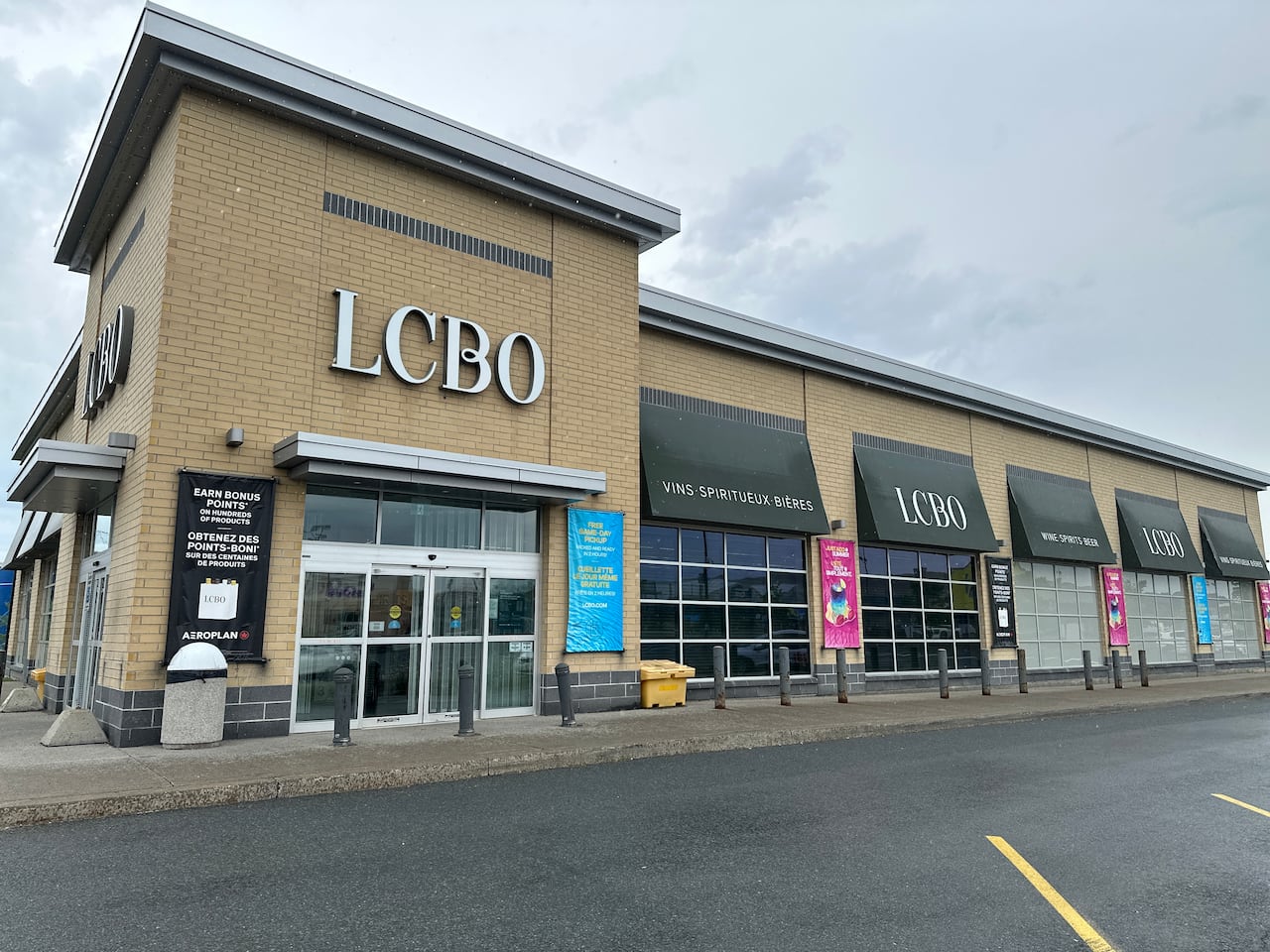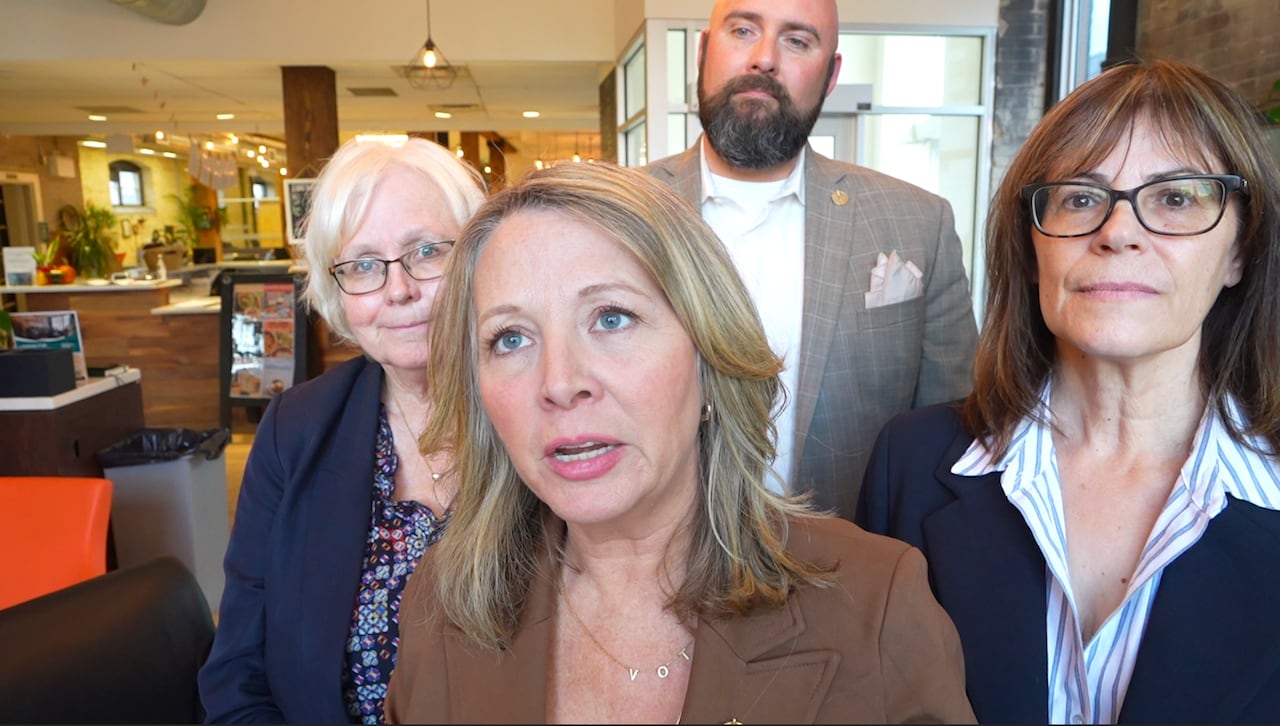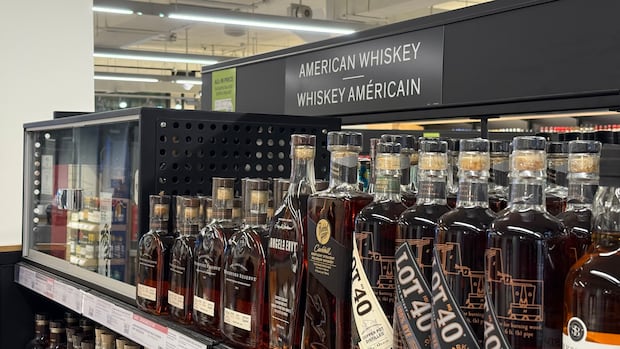The Ontario government is aggressively withholding key details about its large stockpile of American alcohol products, valued at approximately $79.1 million at cost, that were pulled from store shelves as an act of retaliation in the ongoing Canada-U.S. trade dispute.
In August, CBC News filed a freedom-of-information request to the Liquor Control Board of Ontario (LCBO), seeking the fate, size and disposal plans for U.S. alcohol products removed in March. The LCBO took 64 days to respond — 34 days longer than the 30-day limit allowed by law.
When the documents were finally released, they spanned 50 pages, but were heavily redacted. Most of the information about how much inventory is at risk of expiring, how much has already been destroyed and the total cost to taxpayers remains hidden.
The LCBO’s secrecy stands in contrast to provincial liquor authorities in Quebec, New Brunswick and Nova Scotia, where details about the fate of their U.S. liquor stockpiles have been released to the public.
Among the few details contained in the LCBO documents was the estimated $2.9-million inventory provision in its 2024-25 financial statements as an “early assessment of expiring product.” That means the Crown corporation put aside that amount to cover expected losses from products it believed would expire or otherwise lose value before they could be sold.
However, the underlying data that would allow the public to independently verify the estimate or understand the scale of potential waste fell under “cabinet confidence.”
“In the face of President Trump’s unjustified tariffs and tariff threats taking direct aim at our economy, our government directed the LCBO to remove U.S.-made alcohol from their shelves,” Colin Blachar, the director of media for Ontario’s Finance Ministry wrote in an email Monday.
“Products remain off LCBO shelves and are currently held in storage until further notice. As the vast majority of alcohol products have a long shelf life, very minimal product has expired.”
A ‘bizarre and outrageous’ secret
James Turk, a researcher at Toronto Metropolitan University, says cabinet confidence is meant to protect internal discussions among ministers as they debate and develop policy — so they can explore ideas freely without fear of public scrutiny.
“To claim that what their inventory of American wine and liquor is a ‘cabinet confidence’ is bizarre and outrageous,” said Turk, who is an expert on censorship, restricted access to information and government transparency.
He says the principle is meant to allow ministers to have open, “blue-sky” discussions about policy options. Once a decision is made, it is no longer supposed to be confidential.
What’s different in the case of the information withheld by the LCBO, Turk says, is that it includes routine operational information, such as the amount of alcohol in warehouses or the inventory removed from store shelves.
He says it’s a clear misuse of the concept because inventory details aren’t part of deliberations. That is factual information, he says, and he doesn’t believe there is a legitimate reason to claim it is confidential.
“They have no competitors,” he said. “In Ontario, they have exclusive rights to booze. I mean, it’s just ludicrous.”
Turk characterized the LCBO’s resistance as part of a broader trend in the provincial government.
He highlighted the Ford government’s prior refusal in 2018 to release the premier’s mandate letters for his ministers, which outline annual priorities.

The government fought the disclosure for years, claiming it fell under “cabinet confidentiality,” a justification Turk argued was used to shield basic policy direction that other Canadian governments routinely make public.
Still, Canada’s highest court ruled in Ontario’s favour in the dispute. All nine justices agreed the Ontario government did not have to disclose its cabinet mandate letters, saying they were also considered cabinet confidence.
Turk also cited the Greenbelt scandal and the recent lack of transparency surrounding a $2.5-billion job training fund, where the minister’s office reportedly intervened to award money to vendors who were poorly ranked but allegedly had political ties to the government.
Part of broader pattern of secrecy, NDP says
“This is a government that has been very resistant to being transparent at all,” Turk said. “If they’re trying to cover over something as minor as this, then what about important things?”

“It’s really a terribly worrying sign that they’re unwilling to be transparent even about something as straightforward as this.”
Ontario NDP Leader Marit Stiles, who was in London, Ont., on Friday, told CBC News the 50 pages of mostly redacted documents released by the LCBO are part of a broader pattern of secrecy by the Ford government.
“We as the opposition and regular Ontarians have a right to know what the government’s decisions are being based on and again and again we find they are hiding this information from people, they’re blacking it out on the pages.
“What are they afraid of? Why so much secrecy?”
CBC News has filed an appeal with the Information and Privacy Commissioner of Ontario’s Office regarding the decision by the LCBO to redact the internal documents.
Read the LCBO’s internal documents for yourself, below or at this link.







